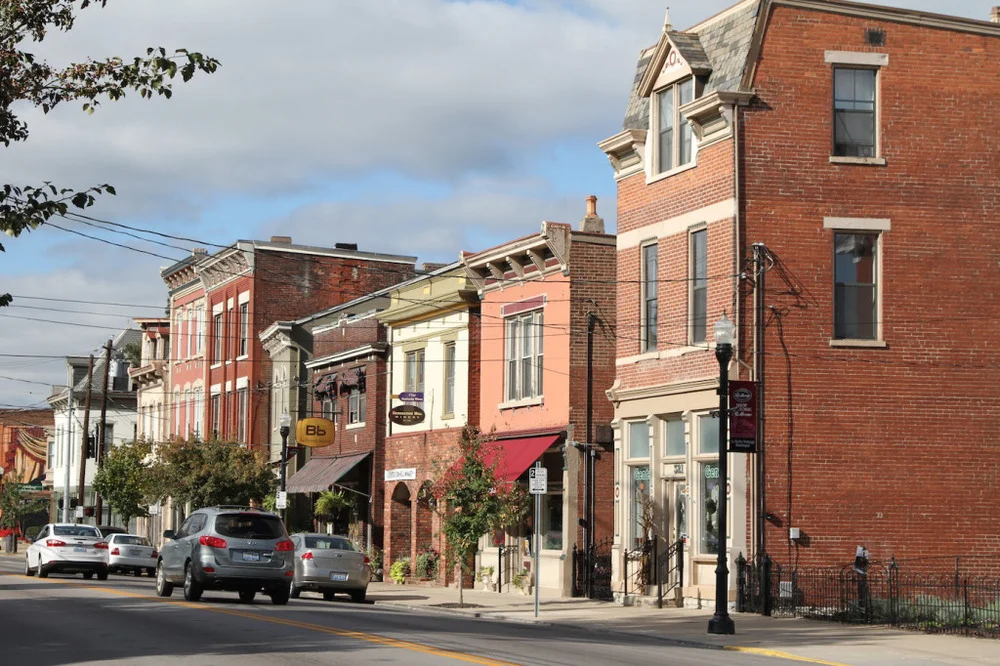How Norfolk, NE, Is Bringing People Back to Public Spaces
This feature profile highlights the work being done in Norfolk, one of the four finalists in the 2024 Strongest Town Contest. Cast your vote to determine the winner, or learn more about the contest, here.
People gather for Oktoberfest in Norfolk, NE.
Riverpoint Square is one of the best-loved public spaces in Norfolk, Nebraska. There’s a weekly farmers market, a bandstand used for a Friday night concert series, appealing native landscaping, and a colorful mural of native-son Johnny Carson. Ten years ago, it was a parking lot.
“I think we really try to be open to new ideas, new ways of doing things and adding new people around the table,” says Norfolk Mayor Josh Moenning. He points to a series of proactive steps the city of 25,000 has taken in recent years to make it more livable, increase housing supply, and attract economic activity.
In addition to creating new public spaces, Norfolk sought to make its downtown core more accessible to all users by replacing signalized intersections with four-way stop signs and adding more mid-block crosswalks. Moenning says the changes have led to traffic calming and a safer environment for pedestrians, which in turn bolsters local shops and restaurants. He credits input the city received from local residents with disabilities, who helped guide some of the design decisions, and says the changes have been so successful that once-skeptical city council members are now strong supporters of upcoming projects to convert more intersections.
Other people-friendly improvements include working with local restaurant owners to expand outdoor dining, an emphasis on public art and murals, and an innovative reengineering of a former dam site on the Elkhorn River into a series of spillways for paddlers and tubers. Norfolk is currently working on an overhaul of its historic waterfront, which has been fragmented by flood-control projects over the years.
Norfolk was the first city in Nebraska to add zoning to allow tiny-house villages, part of a multi-year push to expand its housing supply. “To really get at the affordability question, we need to stop thinking that we can build houses the same way today that we did 60 years ago,” says Moenning. While still seeking a developer to pursue a tiny-house project, the city has seen an increase in townhouses, duplexes, and multi-family construction, and is trying to be nimble to allow a variety of housing types as “people are looking for smaller units in high density settings that are proximate to amenities.”
One of the most hopeful signs for Norfolk is the return of younger residents who once felt their opportunities were too limited to remain. The city isn’t close to a larger metropolitan area, isn’t along an interstate, and doesn’t have a four-year university, “so we've always had to try twice as hard and be very entrepreneurial about attracting new opportunities,” says Moenning. During the pandemic, many younger people returned home from larger cities, saw some of the positive changes, and reconsidered whether they could settle there.
This has led to an infusion of energy and entrepreneurship, which the city is striving to support. ”The way in which the world has has changed economically has benefited a place like ours, because we recognize that if we build a certain quality of life, and we build a community that people want to live in, we don't have to recruit the big smokestack factory to continue having a healthy economy,” explains Moenning.
There’s work to be done to make your own town a Strong Town, and you don’t have to go it alone. Thousands of people across North America are working to make their community a better place. Join with others in your area, or start your own Local Conversation.







Ben Abramson is a Staff Writer at Strong Towns. In his career as a travel journalist with The Washington Post and USA TODAY, Ben has visited many destinations that show how Americans were once world-class at building appealing, prosperous places at a human scale. He has also seen the worst of the suburban development pattern, and joined Strong Towns because of its unique way of framing the problems we can all see and intuit, and focusing on local, achievable solutions. A native of Washington, DC, Ben lives in Venice, Florida; summers in Atlantic Canada; and loves hiking, biking, kayaking, and beachcombing.